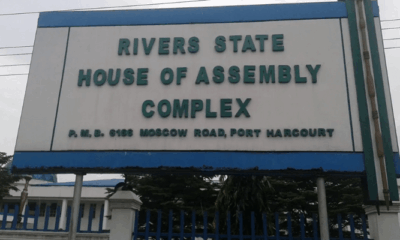Economy
Nigeria’s Economic Crossroads, by Kator Ifyalem

The recent economic data paints a sobering picture – rising unemployment, declining tax revenues, and a general sense of malaise settling over the business community. But these aren’t just abstract numbers on a page. They represent real people struggling to make ends meet, dreams deferred, and a nation’s potential left unfulfilled.
I have listened to business owners share stories, worrying about what might be the next policy shift and how it may impact their investments. It’s a uniquely Nigerian brand of entrepreneurial stress – not just the usual challenges of running a business, but the constant fear that the rules of the game could change overnight.
Let’s take for instance, a business owner who runs a small manufacturing outfit in Lagos. She had finally scraped together enough capital to expand her operations, with a potential to create dozens of new jobs. But she is hesitating to pull the trigger. What if I invest all this money and then wake up to find some new regulation has made it all worthless?
This pervasive uncertainty is more than just an inconvenience, it’s actively choking the life out of the economy. The latest figures from the National Bureau of Statistics are a wake-up call. Unemployment ticking up to 5.3% in Q1 2024 might not sound catastrophic on paper, but it represents thousands of Nigerians newly without work. Even more worrying is the rise in discouraged job seekers, young people who should be the engine of future growth giving up on finding formal employment altogether.
The effects are clear. Company Income Tax collection plummeting by nearly 13% in a single quarter speaks volumes about the health of the business sector. When companies aren’t profitable, they can’t hire. When they can’t hire, consumer spending power dwindles. It’s a vicious cycle that is incredibly difficult to break out of once it takes hold.
But here’s the thing, it doesn’t have to be this way. Nigeria has all the ingredients to be an economic powerhouse. We have a young, energetic population, abundant natural resources, and a spirit of entrepreneurship that’s the envy of the continent. What we lack is the stable policy environment that would allow these assets to truly flourish.
So, what would it take to turn things around? I believe it starts with a fundamental shift in how the government approaches economic policy. We need a commitment to long-term thinking and policy stability that transcends individual administrations or political cycles.
Imagine, for a moment, if Nigeria had a set of core economic principles that were enshrined in law, requiring a supermajority in the National Assembly to change. With the right foundation in place, entrepreneurs could make investment decisions with confidence, knowing that the fundamental rules won’t change on a whim and they will have reasonable return on investments.
Of course, implementing such a system would require significant political will and cooperation across party lines. But I believe the potential benefits are worth the effort. A Nigeria known for its stable business environment would become a magnet for both domestic and foreign investment. We could see a boom in manufacturing, tech start-ups, and agricultural innovation. All sectors that could provide sustainable and quality jobs for the growing population.
Moreover, this stability would likely lead to increased tax revenues in the long run, even if some short-term concessions were needed to jump-start investment. A thriving formal business sector means more companies paying Company Income Tax, more employees paying Personal Income Tax, and overall economic growth that expands the tax base.
But policy consistency is not just about attracting big investors or multinational corporations. It is equally crucial for the millions of small businesses and informal sector workers who form the backbone of the economy. Clear and consistent regulations could help many of these enterprises formalize, accessing credit and growth opportunities that are currently out of reach.
The challenge may be that, if perhaps, there are people benefiting from the current system, they will likely resist change. There is also the valid concern that too rigid policies or stifling regulations could leave us unable to respond to global economic shifts or crises. These issues are legitimate, but I believe they can be addressed through careful policy design and robust democratic processes. The goal is not to create an inflexible system, but rather one that balances stability with the ability to make carefully considered and transparent adjustments when truly necessary.
We can continue down the current path of short-term thinking, inconsistent regulation and policy instability, watching as our economic challenges deepen or choose a new direction, that of sustainable, consistent policies and regulations that unleash the potential of Nigerian entrepreneurship and innovation.
The choice ultimately lies with us and our elected leaders. We need to have strategic national conversations about the kind of economic future we plan to build. We need to demand more than just short term fixes or populist promises. We need a vision for sustainable growth.
























